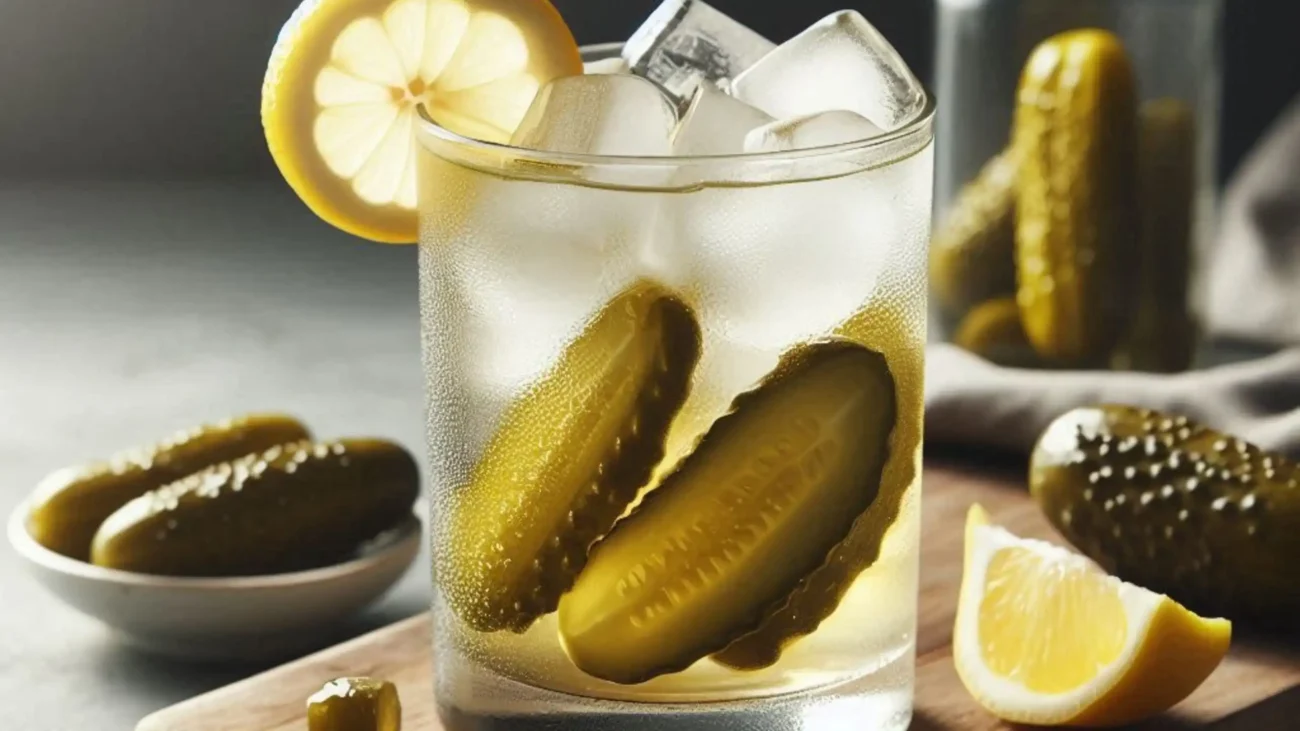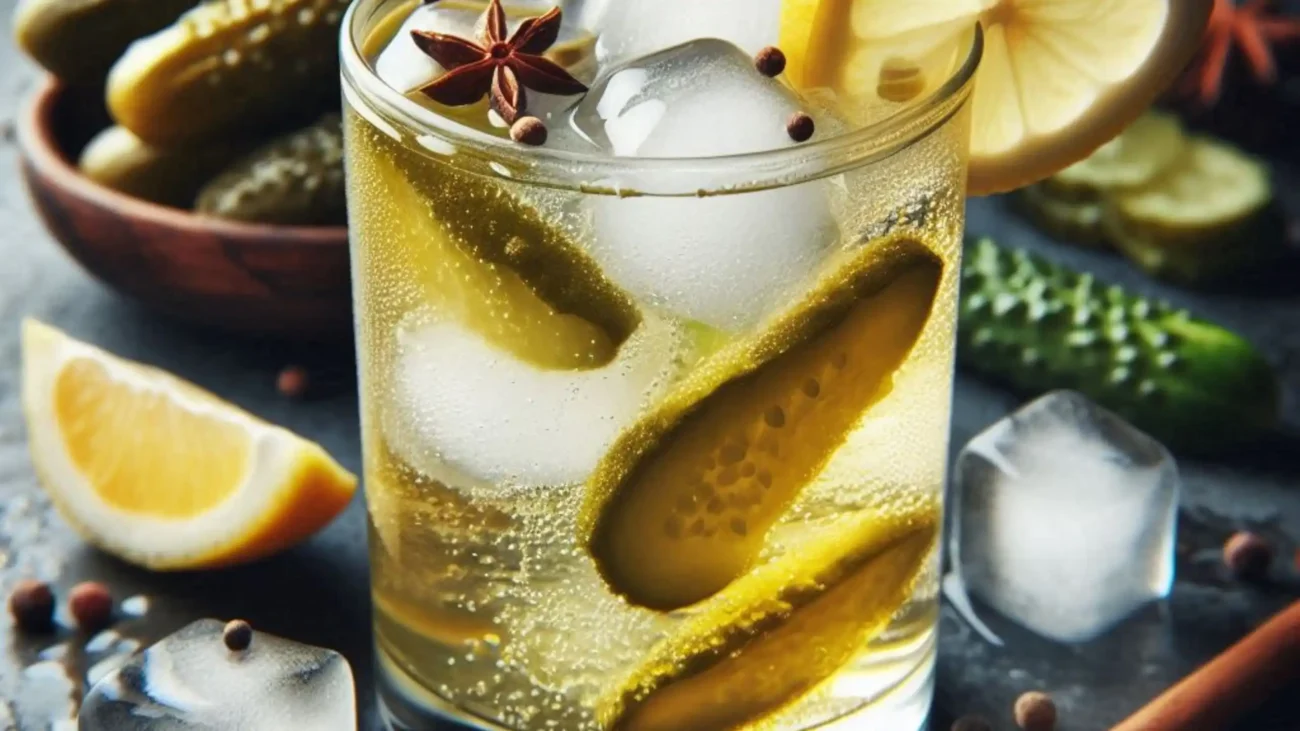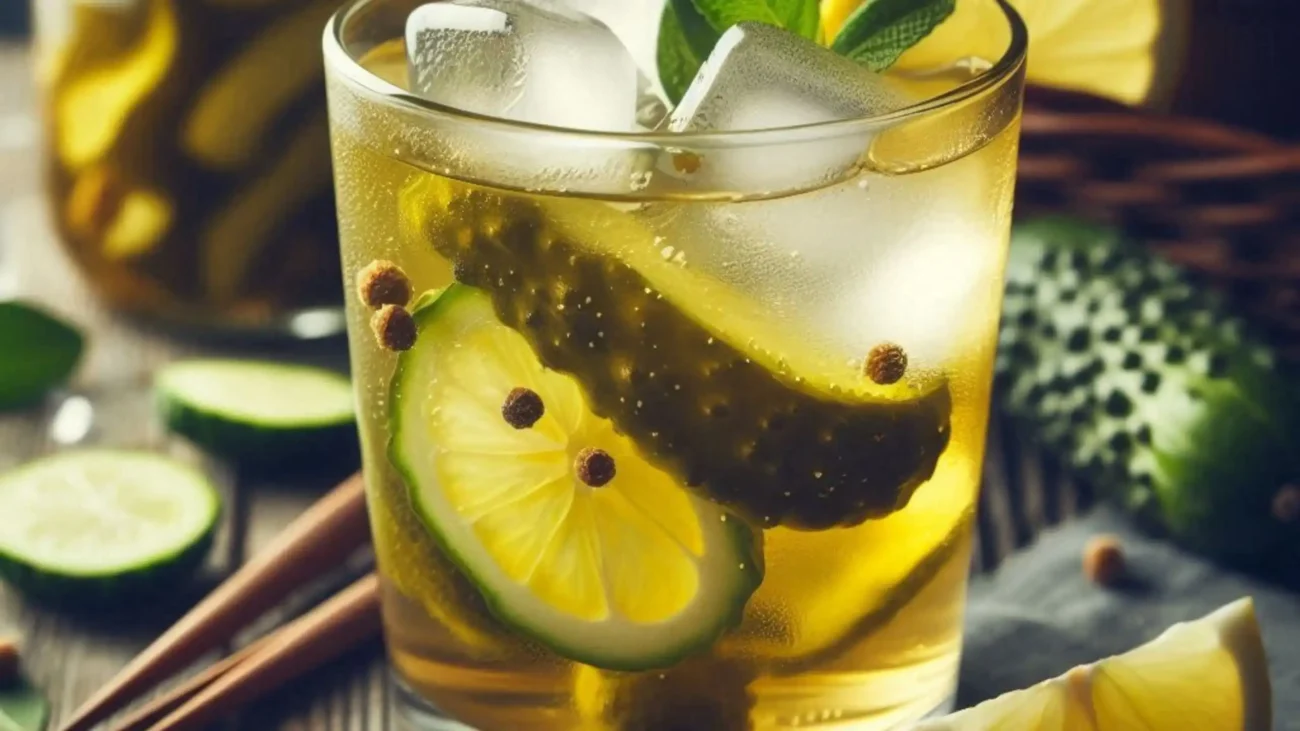Pickle juice, long cherished by athletes and health enthusiasts alike, has gained popularity for its surprising health benefits. What was once a simple byproduct of pickling cucumbers is now considered a go-to remedy for various ailments, as well as a refreshing drink that can boost athletic performance. In this detailed guide, we’ll uncover everything you need to know about pickle juice, from its composition to its numerous health advantages. We’ll also address common myths and answer frequently asked questions to clarify what pickle juice can and cannot do for you. solar gadget
Table of Contents
| Heading | Subheadings |
|---|---|
| H1: Pickle Juice: A Brief Overview | |
| H2: The Nutritional Breakdown of Pickle Juice | |
| H3: The Science Behind Pickle Juice’s Health Benefits | – Electrolytes and Hydration – Muscle Cramps Relief – Antioxidant Properties |
| H3: Pickle Juice for Athletes: The Performance Booster | – Rehydration Post-Workout – Recovery and Muscle Repair |
| H2: Pickle Juice as a Remedy for Muscle Cramps | – The Science of Cramp Relief – How to Use Pickle Juice for Quick Relief |
| H3: The Role of Sodium and Electrolytes in Pickle Juice | – Balancing Electrolytes – Sodium and Potassium Content |
| H2: Pickle Juice for Digestion: A Natural Aid | – Vinegar’s Role in Digestion – Pickle Juice for Gut Health |
| H3: The Antioxidant Power of Pickle Juice | – Fighting Free Radicals – Supporting Immune Health |
| H2: Pickle Juice for Blood Sugar Regulation | – Vinegar’s Effect on Blood Sugar – Pickle Juice and Insulin Sensitivity |
| H3: Is Pickle Juice Good for Weight Loss? | – Appetite Suppression – Metabolism Boost |
| H2: DIY Pickle Juice: How to Make Your Own | – Ingredients You’ll Need – Step-by-Step Recipe |
| H2: Potential Side Effects of Pickle Juice | – High Sodium Levels – Acidic Effects on Teeth |
| H2: Frequently Asked Questions (FAQs) About Pickle Juice | – Can pickle juice replace sports drinks? – How much pickle juice should I drink daily? – Is pickle juice safe for everyone? |
| H2: Conclusion |
Pickle Juice: A Brief Overview
Pickle juice, the liquid in which cucumbers and other vegetables are pickled, is a tangy, salty brine that offers more than just flavor. Historically, pickle juice was discarded as a byproduct of pickling, but over time, people began to recognize its potential benefits. Whether you’re sipping it to relieve muscle cramps or adding it to your post-workout hydration routine, pickle juice has earned its place in the world of health and wellness.
The Nutritional Breakdown of Pickle Juice
Pickle juice is packed with electrolytes, especially sodium, which is essential for hydration and bodily functions. It also contains potassium and vinegar, which play a role in muscle contraction, digestion, and blood sugar regulation. One cup of pickle juice generally contains around: solar gadget reviews
- Sodium: 800–1,000 mg
- Potassium: 100–200 mg
- Calories: 0-15 calories per serving
These nutrients make pickle juice an effective, low-calorie option for those looking to replenish electrolytes after a workout or to relieve muscle cramps.
The Science Behind Pickle Juice’s Health Benefits

Electrolytes and Hydration
The sodium and potassium content in pickle juice are key to maintaining electrolyte balance in the body, especially after physical exertion. Electrolytes help regulate hydration, nerve function, and muscle contraction, making pickle juice an excellent remedy for dehydration. blog
Muscle Cramps Relief
Research has shown that drinking pickle juice can relieve muscle cramps in under two minutes. This rapid relief is likely due to the acetic acid in the vinegar, which triggers a neural response that reduces the severity of cramps.
Antioxidant Properties
Pickle juice contains antioxidants that help fight off free radicals, molecules that can cause oxidative stress and lead to chronic diseases. These antioxidants, including vitamins C and E, support overall immune health and recovery after exercise. solar guides
Pickle Juice for Athletes: The Performance Booster
Rehydration Post-Workout
Athletes often turn to pickle juice for its ability to replenish electrolytes quickly. After intense physical activity, the body loses water and sodium through sweat. Drinking pickle juice helps rehydrate and rebalance these levels faster than water or commercial sports drinks.
Recovery and Muscle Repair
Beyond hydration, pickle juice aids in muscle recovery. The combination of vinegar and electrolytes helps reduce inflammation and accelerates muscle repair after strenuous exercise, allowing athletes to bounce back more quickly. travelers

Pickle Juice as a Remedy for Muscle Cramps
The Science of Cramp Relief
Muscle cramps can strike at the worst times, especially during or after exercise. The acetic acid in pickle juice stimulates a reflex in the nervous system, which inhibits the misfiring neurons that cause muscle cramps. This process is known as neurotransmitter inhibition, and it explains why pickle juice can relieve cramps so quickly.
How to Use Pickle Juice for Quick Relief
To relieve muscle cramps, drink 1-2 ounces of pickle juice. Many athletes keep pickle juice on hand to use during races or high-intensity training sessions when cramps are most likely to occur. ranks focus
The Role of Sodium and Electrolytes in Pickle Juice
Sodium is crucial for maintaining fluid balance, especially after heavy sweating. Pickle juice contains a concentrated amount of sodium, which can prevent dehydration more effectively than water alone. Potassium helps maintain proper muscle and nerve function, ensuring that your body remains in balance during and after exercise.
Pickle Juice for Digestion: A Natural Aid
The vinegar in pickle juice has been linked to improved digestion. It helps stimulate the production of stomach acid, which can aid in the breakdown of food and the absorption of nutrients. For individuals struggling with digestive issues, a small amount of pickle juice before meals can make a noticeable difference in gut health. blog
Pickle Juice for Gut Health
Fermented foods like pickles introduce beneficial bacteria to the gut, supporting the balance of gut flora. While not all pickle juice is fermented, those that are can help improve digestion and gut health.
The Antioxidant Power of Pickle Juice
Antioxidants in pickle juice fight free radicals, helping to protect the body from oxidative stress. These antioxidants may play a role in reducing inflammation, promoting healthy skin, and even preventing chronic diseases. Business
Pickle Juice for Blood Sugar Regulation
Vinegar’s Effect on Blood Sugar
The acetic acid in vinegar, a key component of pickle juice, has been shown to improve insulin sensitivity and lower blood sugar levels. This makes pickle juice a helpful addition to the diets of individuals managing diabetes or blood sugar imbalances. Health

FAQs
Can pickle juice replace sports drinks?
Yes, pickle juice is a natural alternative to sports drinks, offering similar benefits with fewer calories and less sugar.
How much pickle juice should I drink daily?
Moderation is key. Aim for 1-2 ounces a day if using it for hydration or cramp relief.
Is pickle juice safe for everyone?
People with high blood pressure or kidney issues should consult their doctor due to its high sodium content.
